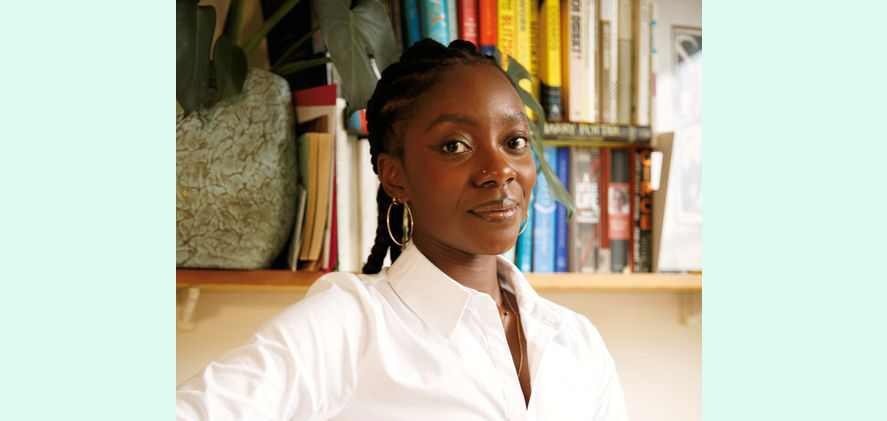
Submitted by Rachel Gardner on Wed, 24/11/2021 - 16:48
An award to a PhD student here will help her work with local communities as she uses machine learning techniques to monitor the health, biodiversity and deforestation of Ghanaian forests.
Joycelyn Longdon has just been awarded a Cambridge Conservation Initiative Knowledge Exchange Studentship. The studentship will support the participation of indigenous communities in the use of cutting-edge AI practices to aid conservation efforts.
Joycelyn is in her first year of studying for a PhD at the Artificial Intelligence for Environmental Risk (AI4ER) Centre, which is co-hosted here in the Department. Her PhD focuses on the increasing use of state-of-the-art tools such as remote sensing and machine learning in the understanding and monitoring of forest ecosystems.
These tools are of great value to conservation efforts - but they can also fuel a disconnect between conservation projects and indigenous communities and weaken important links to essential local knowledge.
Joycelyn is investigating ways to ensure that the benefits gained from including local knowledge and participation in the conservation process are not lost alongside the use of these technologies.
The Studentship will enable Joycelyn to work with researchers at the British Trust for Ornithology (BTO), which has experience of using bioacoustics and machine learning to monitor wildlife across Europe.
Working with Joycelyn, the Trust will investigate the use of acoustic monitoring to aid conservation efforts in West Africa. The Studentship funds will support the fieldwork, technological development and the co-creation of new knowledge with Indigenous communities through the deployment of acoustic recorders and subsequent application of machine learning techniques for the monitoring of deforestation and degradation events, as well as the biodiversity and health of Ghanaian forests.
This collaborative research will develop and implement a framework that explores new modes of scientific inquiry, addresses artificial intelligence ethics from a technical perspective, and repositions machine-learning as an important tool in ecology and conservation.
Joycelyn explains: "With my work being so interdisciplinary the grant will enable me to pursue new collaborative opportunities by working with the BTO as well as on-the-ground partners, with knowledge-sharing between these fields being foundational to the success of the project."
Alan Blackwell, Professor of Interdisciplinary Design here, is Joycelyn’s co-supervisor. He says: "This is a great opportunity for applied research to be developed across disciplinary boundaries and in collaboration with local communities."
Adham Ashton-Butt, Researcher at the British Trust for Ornithology, says: "Collaboration with Joycelyn will develop new methods for ecological monitoring in Ghana and build better research practices in conservation by working with indigenous groups."
- This story originally appeared on the website of the Cambridge Conservation Initiative.

